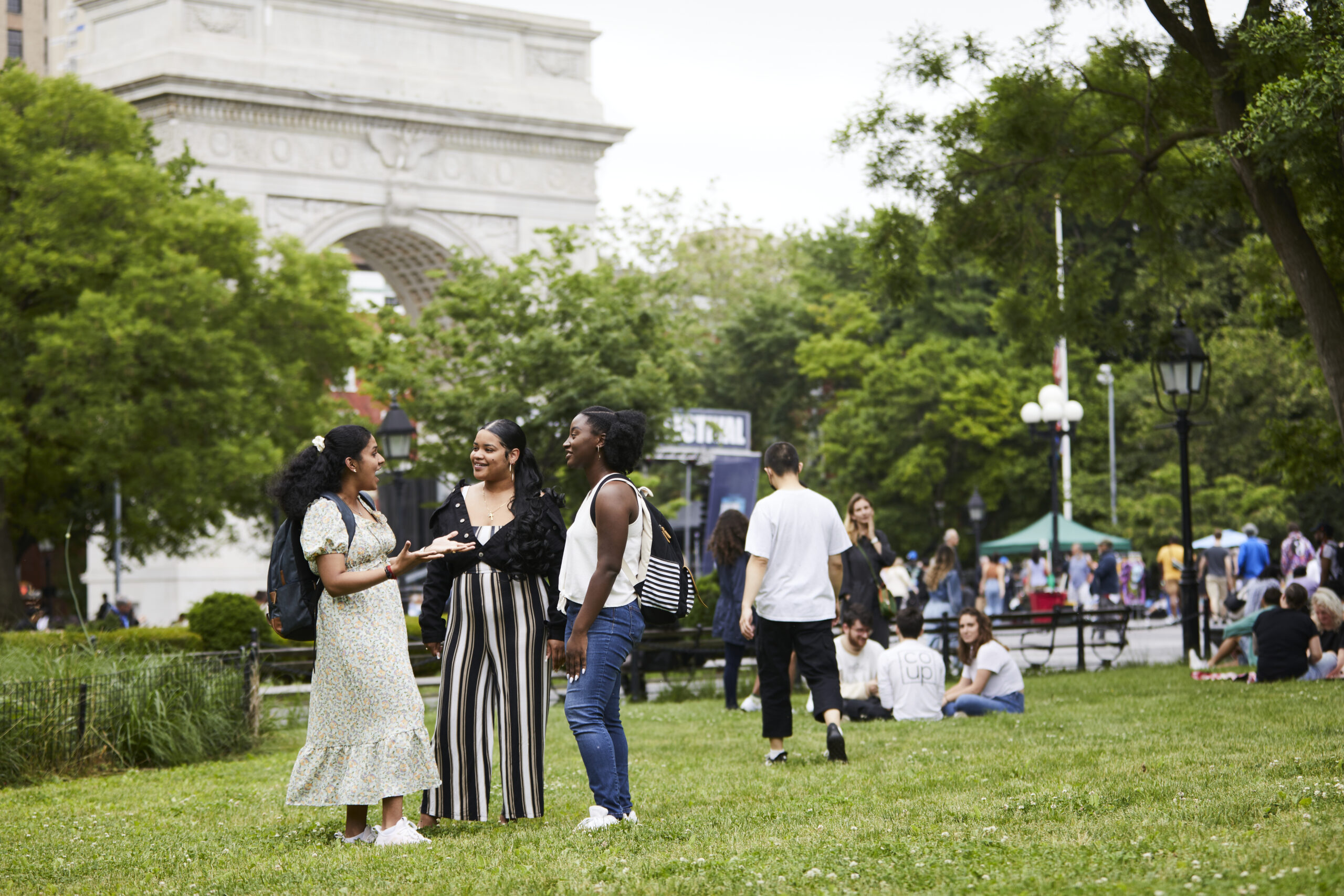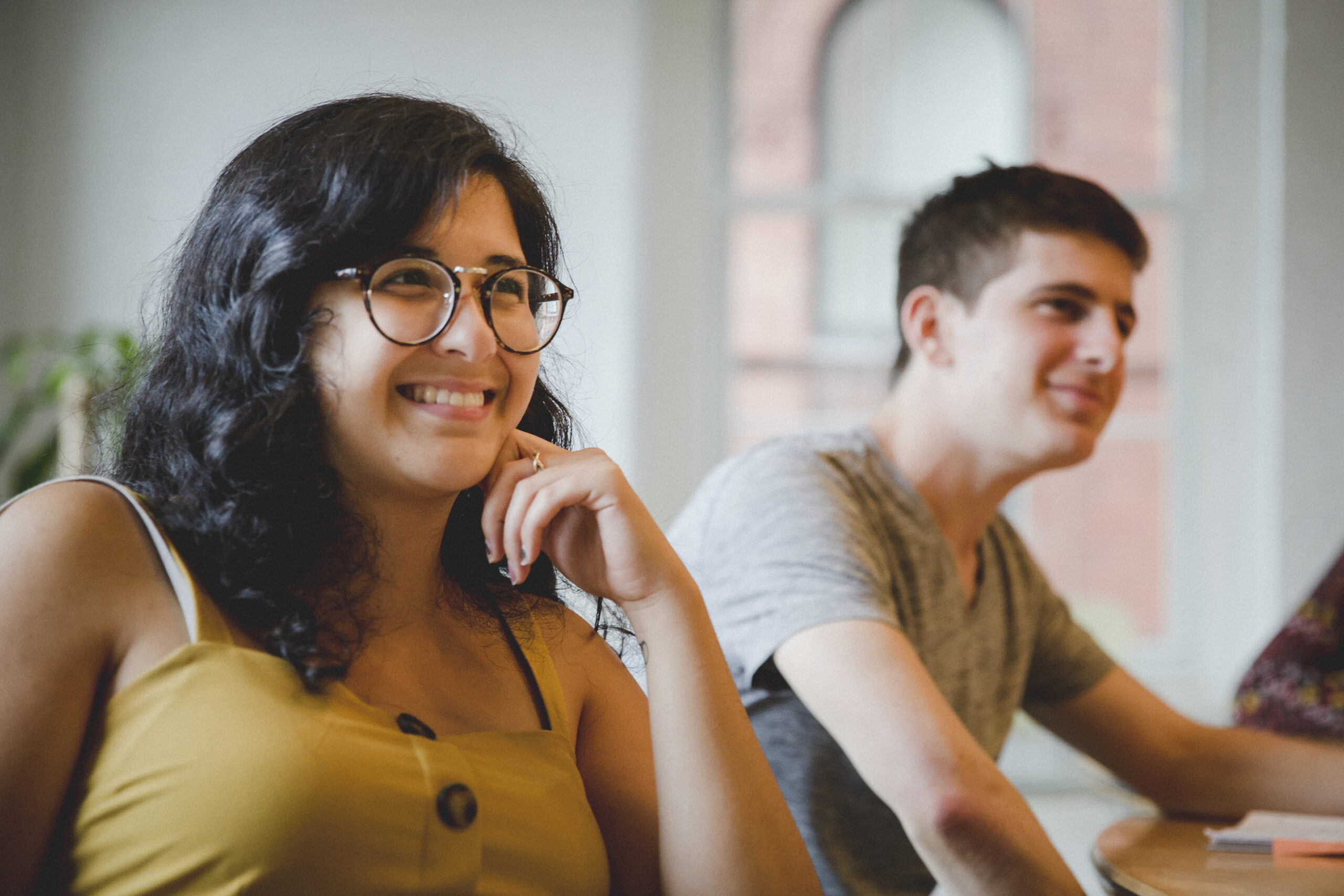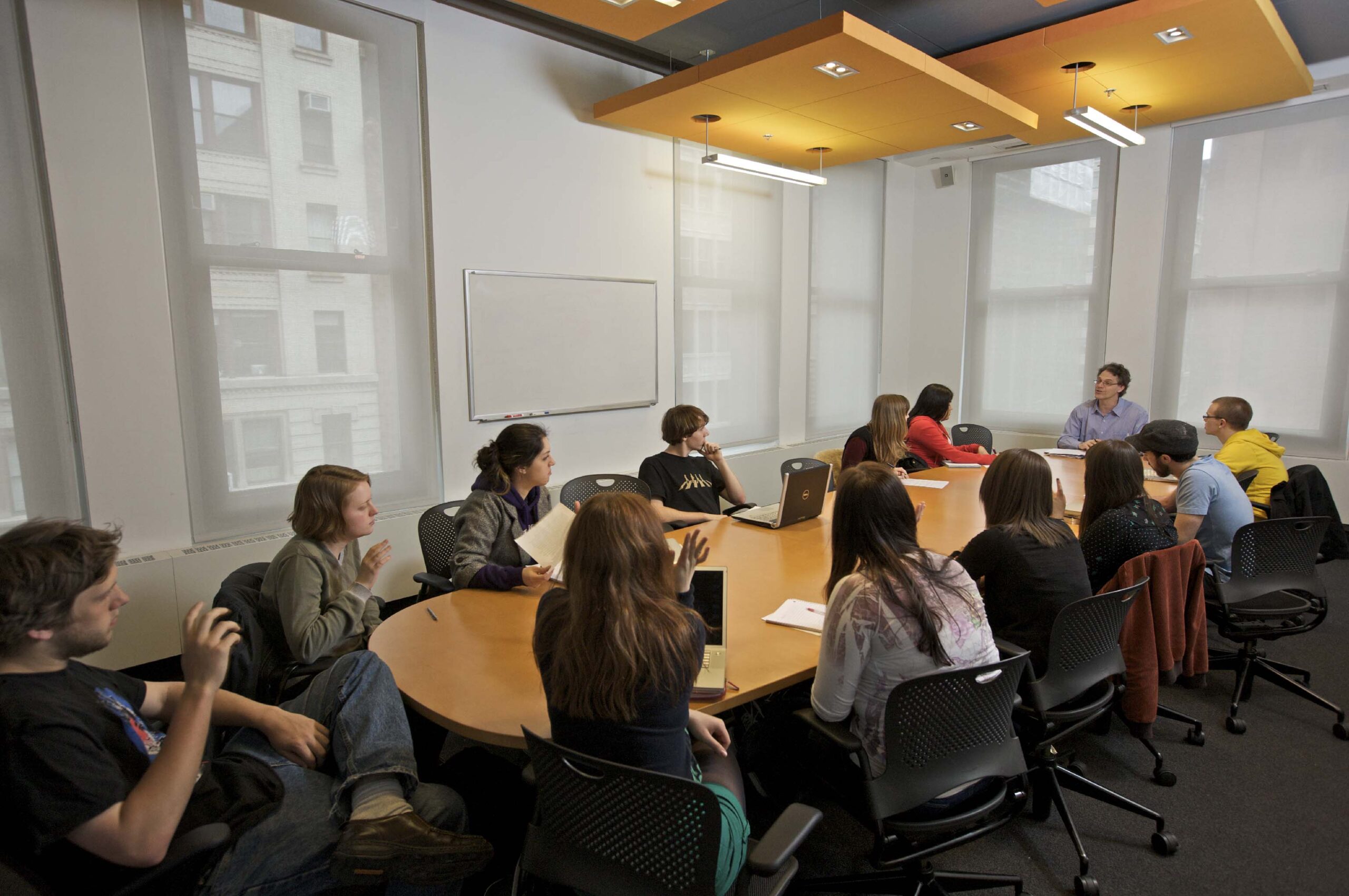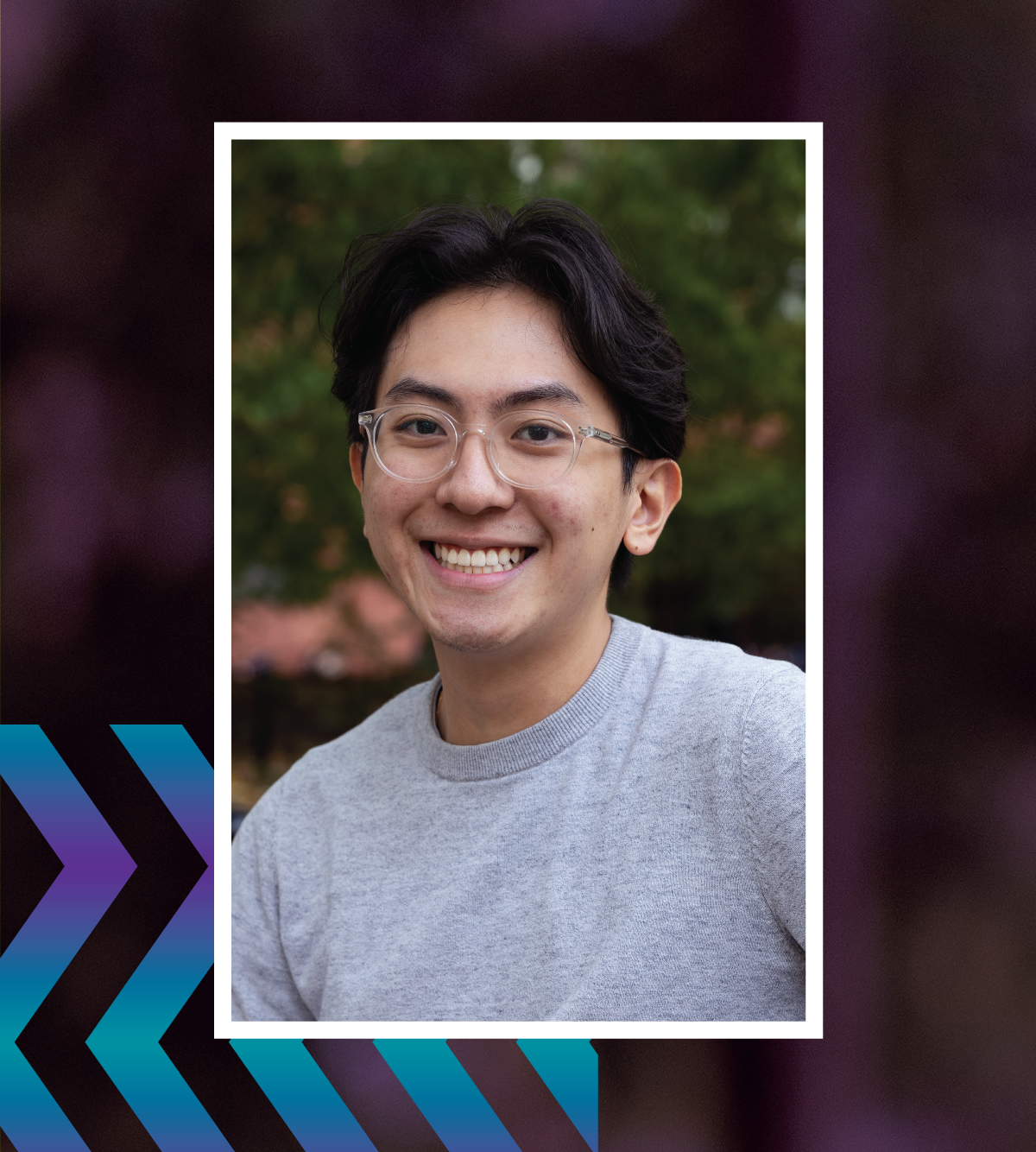The TL;DR
- Wellness and Human Connection connects students with peers, senior faculty, and elderly community members.
- Students examine the history and evolution of wellness in the context of the many factors that influence it.
- In addition to a focus on wellness, the class offers students practical skills applicable in almost any professional field.

For many undergraduate students, their first-year college experience is filled with exciting opportunities, new friends, and, in some cases, large lecture-style courses. That’s why Janet Njelesani, an associate professor of occupational therapy in the Steinhardt School of Culture, Education, and Human Development, and James Fraser, a Steinhardt professor of history and education, created a course to allow first-year students to engage with a humanities topic in a small seminar-style class of 30 or fewer students. Their course, Wellness and Human Connection, is open to all undergraduates (including first-year students). What’s more, it can also count as credit toward a minor in Child and Adolescent Mental Health Studies. The class pushes students to explore wellness while building relationships with fellow students and senior faculty—not to mention local community members.

A Robust Exploration of Wellness
The course examines wellness from all angles. Students learn about its historic roots and evolving definition as well as the many factors—social, political, cultural, racial, economic, and more—that affect an individual’s wellness. Moreover, students engage with these issues through historical texts and in-depth discussions in weekly class sessions. They then go out into the community and learn about wellness in real time. Students meet once a week with an elderly mentor throughout the semester. And in those weekly sessions, students interview their mentor about their life and history as well as their relationship with wellness. As a result, mentors are given the opportunity to reflect on their past experiences and choices.
Reconsidering Wellness in Your Own Life
Professor Njelesani designed these weekly sessions to help students connect the coursework to their lives and the world around them. “We wanted students to have opportunities to closely read and reflect on seminal texts, and then be able to apply that to the real world,” she says. “So they can read about ethics in health care, and then speak to a person who lives in the community and may have experienced some of those issues themselves.”
For Oscar Cruz, a former Psychology major who took the course the fall before graduating in 2023, the weekly sessions with his mentor were eye-opening. “We didn’t have anything in common in terms of life or religion,” he says about his mentor. “We came from two different worlds, and that presented an opportunity where I could learn a lot from somebody and open up my mind about how other people live.”
Professor Fraser notes that the student-mentor relationship can be simultaneously enriching, expansive, and surprising. “Some of the students really developed long-term friendships with their mentors,” he says.

The Importance of Listening
Most students emerge from the course with an updated perspective on wellness, but they can also expect to gain practical skills applicable to any field. “We know it’s so important if you’re going to be a lawyer, or a doctor, or a teacher to be able to connect with people and to actively listen,” says Professor Njelesani. “Being a reflective thinker is an important skill for almost every profession.”
For Oscar, who now studies occupational therapy at the graduate level at Steinhardt, the course helped him rethink his own relationship to wellness. “It’s a very intimate class,” he says. “And I think that was the whole purpose: talking about other people’s perspectives really helps shape your own reality of what wellness means.”
When asked who would benefit from the course, Oscar’s reply: “Anyone.” He says, “You gain a mentoring relationship, and you also get a new perspective of life.”



